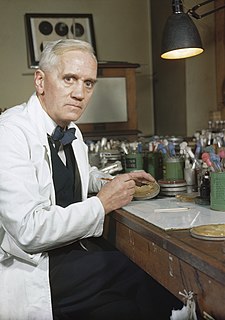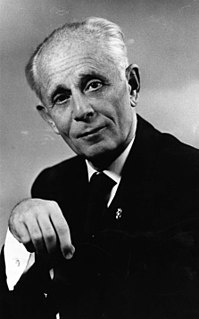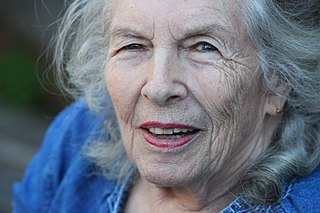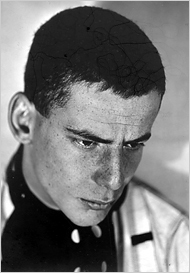A Quote by Alexander Fleming
(The discovery of penicillin) was a triumph of accident, a fortunate occurrence which happened while I was working on a purely academic bacteriological problem.
Related Quotes
A great discovery solves a great problem, but there is a grain of discovery in the solution of any problem. Your problem may be modest, but if it challenges your curiosity and brings into play your inventive faculties, and if you solve it by your own means, you may experience the tension and enjoy the triumph of discovery.
I doubt that Fleming could have obtained a grant for the discovery of penicillin on that basis [a requirement for highly detailed research plans] because he could not have said, 'I propose to have an accident in a culture so that it will be spoiled by a mould falling on it, and I propose to recognize the possibility of extracting an antibiotic from this mould.'
Finally, imagine that you've really worked hard on yourself and become a level 10 person. Now, is this same level 5 problem a big problem or a little problem? The answer is that it's no problem. It doesn't even register in your brain as a problem. There's no negative energy around it. It's just a normal occurrence to handle, like brushing your teeth or getting dressed.
Not all that is presented to us as history has really happened; and what really happened did not actually happen the way it is presented to us; moreover, what really happened is only a small part of all that happened. Everything in history remains uncertain, the largest events as well as the smallest occurrence.
That something happened to you is of no importance to anyone, not even to you. The important thing about you is what you choose to make happen - your values and choices. That which happened by accident - what family you were born into, in what country, and where you went to school - is totally unimportant.
What struck me most in England was the perception that only those works which have a practical tendency awake attention and command respect, while the purely scientific, which possess far greater merit are almost unknown. And yet the latter are the proper source from which the others flow. Practice alone can never lead to the discovery of a truth or a principle. In Germany it is quite the contrary. Here in the eyes of scientific men no value, or at least but a trifling one, is placed upon the practical results. The enrichment of science is alone considered worthy attention.
It was Darwin's chief contribution, not only to Biology but to the whole of natural science, to have brought to light a process by which contingencies a priori improbable, are given, in the process of time, an increasing probability, until it is their non-occurrence rather than their occurrence which becomes highly improbable.
It is not difficult to make microbes resistant to penicillin in the laboratory by exposing them to concentrations not sufficient to kill them, and the same thing has occasionally happened in the body. The time may come when penicillin can be bought by anyone in the shops. Then there is the danger that the ignorant man may easily underdose himself and by exposing his microbes to non-lethal quantities of the drug make them resistant.
While photography to Cartier-Bresson is constantly an intuitive process, it is never purely instinctive. It is founded on continuous intellection, on ceaseless consideration during all moments previous to, or preparatory for, the pressing. It does not only operate in the blinding flash of a moment seized; it works all the time. The snatched picture merely cuts across the vein of observable incident or accident which is always beating, whether or not the fingers actually press.
In my first publication I might have claimed that I had come to the conclusion, as a result of serious study of the literature and deep thought, that valuable antibacterial substances were made by moulds and that I set out to investigate the problem. That would have been untrue and I preferred to tell the truth that penicillin started as a chance observation. My only merit is that I did not neglect the observation and that I pursued the subject as a bacteriologist. My publication in 1929 was the starting-point of the work of others who developed penicillin especially in the chemical field.



































